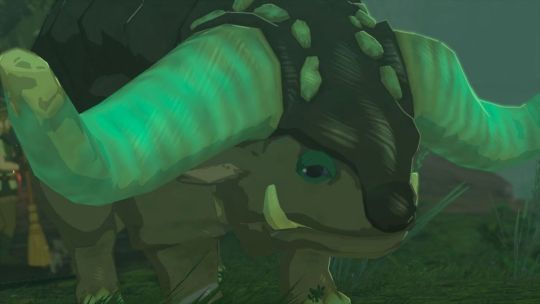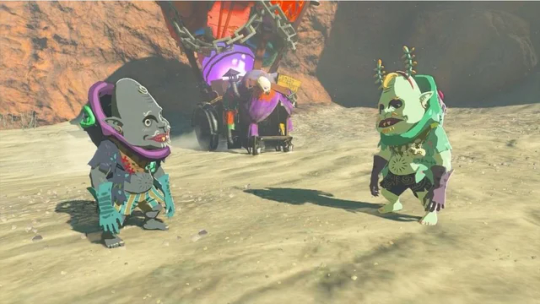#headscratchers
Explore tagged Tumblr posts
Text
I find lp Athy's yearning for Claude's love kind of strange. If a child is not raised by their parent and saw them only on rare occasions where their parent never aknowledged them as their child or showed them a gesture of kindness, instead pushed them away, insulted them and humiliated them, then the child will come to believe that this is how things are supposed to be and seek love elsewhere. Athy did have parental figures in form of the palace staff (Lily, possibly Hannah, Cress etc.) and Lily did not deny her any love.
Additionally lp Athy grew up isolated from the rest of the world in the Ruby Palace and was raised by women alone with no contact to other children. Wouldn't it make more sense for her to be anxious and avoidant of men? How can she yearn for fatherly love when she had never seen how a family was like? A father might have been something magical but nonexistent like a unicorn to her. A family could have been something outdated from olden times. Unless Lily raised her to seek out Claude's love, it is incomprehensible to me why Athy would want to desire to be close to such a person, especially when she must have heard rumors about the massacre of the Ruby Palace while growing up.
Something about lp Athy's characterization is off. She isn't acting like a child that has been discarded by her father from the start. She is acting like a child who used to have the attention of her father that she lost when she was little and is now desperately trying to win back. Why does she call him father? A child like that would call their father by his first name or in this case by his title and treat him like a stranger or a person of authority but not like a member of their family.
It seems to be suggested that part of the reason why Athy studied and practiced so much was because she hoped that her efforts would be rewarded at her debutante ball, but Claude has never been the kind of person to value academic achievements or be impressed by good etiquettes. What gave her the idea that if he saw how much she had improved, he would change his mind about her and accept her as his daughter?
#wmmap#who made me a princess#sbapod#suddenly became a princess one day#claude de alger obelia#athanasia de alger obelia#headscratchers
21 notes
·
View notes
Text
the slave collars that can sedate or shock (?) the person wearing it with the ring seems to be powdered by magic, but why would magicians invent such a devilish device used to subjugate a minority when they themselves are oppressed by the Eorkian Empire? why would the Eorkian Empire rely heavily on magic when their goal is to wipe out all magicians? why would they trust a group they distrust to keep control over another group they distrust?
#the eckart duchy uses teleportation magic to travel faster they hire magicians for Penelope's birthday party#you can just walk into a shop on the main street and buy a magical item easily without having a background check done on you#yet the wizard orphans would have died in the slums had Vinter not taken them in#Vinter has to conceal his face to do business safely#there exist anti-magic groups#the empire needs magicians but the way they treat magicians would result in a decrease of the population capable to wield magic#I'm so confused the wizards are supposedly endangered but I see little of the danger? except for Leila#did I just imagine it that it was once mentioned the Empire didn't think well of magicians and discriminated against them?#vadd#death is the only ending for a villainess#villains are destined to die#vadtd#headscratchers
7 notes
·
View notes
Text
It makes no sense to me how Harrow from the 9th house, THE death cult house, is revolted by cannibalism, incest and necrophilia that the 3rd house practices. Considering that an entire generation of Harrow's planet consisted of 200 children and the ratio of nobles to commoners was roughly around 3%, that would make only 6 out of 200 people nobles. Added to that the fact that necomancer have lower birth rates and infertality issues. Harrowhark's family is probably incredibly inbred. It would also make much more sense for the 9th house to practice cannibalism and necrophila than the 3rd house, which is so wealthy that their house motto is literally "Three for the gleam of a jewel or a smile". The 9th house is so poor they don't even know what vegetables look like and Harrow, the Reverent's daughter, had never drank tea before until the lyctorhood trials. They reuse body parts for anything. The thought that some would eat their deads to honor them or simply out of necessarity because they were malnourished and lacked nutrients seems very plausible to me. Harrow's family had no moral qualms about gassing 200 children to ensure the birth of their miracle baby. Would what little morals they had left really hold them back from feeding their subjects corpses to ensure the continued existence of their population?
13 notes
·
View notes
Text
Something that's always bugged me…
…about the Vocaloid song "Summer Idol".

Isn't "oldies retro" redundant?
17 notes
·
View notes
Text
Jas tells the Farmer that they smell like grass. Wait... doesn't she live on a ranch? Where her aunt cares for cows and horses and other animals? Wouldn't they smell worse than grass? I can't imagine she can ever fully escape that scent. I live 5-10 miles (depending on the direction) away from cows on the edge of farm country IRL, and I can still smell cows some nights if the wind blows just right. Let me tell you. It's not a pleasant scent. 🤢🐄
7 notes
·
View notes
Text

The one reason the BOOTH doesn’t translate some alien languages is
the unintelligibility only makes the aliens that much scarier.
#Inspector Spacetime#Headscratchers (trope)#Headscratchers#The Unintelligible (trope)#The Unintelligible#the one reason#BOOTH#DARSIT#X 7 Dimensioniser#X 7#doesn't translate some alien languages#alien languages#is the unintelligibility#makes the aliens#that much scarier
1 note
·
View note
Text





wondered when exactly Damian started casually chatting with his hallucinations of Alfred in Robin (2021)
figured isolating himself in a dark tower carrying pictures of Alfred and the weight of his death would do the trick! (Detective Comics (2016) #1032)
#damian wayne#alfred pennyworth#batbabyart#'not-great-dad Bruce' rant ahead but. Bruce aware of Damian's guilt and allowing it to fester for so long still boggles my mind lol#there's a couple headscratchers i can think of but the worst instance had to be the Pennyworth RIP comic#Damian confessing his regret and leaving in tears while Bruce SAT there going 'he knows there's no blame :l'#when Jason already loudly blamed Damian lol!! and Bruce silently blamed Damian too!!#(ofc lots of internalized hurt and blame with grief but still)#ANYWAY the Alfred and Damian photos from that tec issue were so cute so this was partially an excuse to redraw them haha#this used to be Damian's og outfit+vest combo but it looked too silly to me sdgf
2K notes
·
View notes
Text

happy bday jake! its suit time again
jane
roxy
dirk
alpha kids
beta kids from last year
#jake english#homestuck#hs#lovisas art#this one was a real headscratcher until the argyle pattern finally hit me
2K notes
·
View notes
Text


After participating in the in-game discussion for Episode 12 out of curiosity, I just remembered something—
This might be pretty farfetched but what if Towa's sudden meltdown is similar to that unexplained attack Jiro had in Episode 9 when he saw the ghost of the child? Though I get that Towa's episode was more out of the blue with no evident triggers...
I just thought is this like a One-Eyed Sleeping Beauty murder suspect thing?
#oof couldn't sleep until i got this out of my system#those 5 all have some sort of trauma in there probably#we can compile all the unanswered questions in previous chapters and maybe make something out of them#it's not like i've read the stories several times though so i probably forgot some details#but hey it's headscratchers like this that make the story so intriguing#towa otonashi#otonashi towa#jabberwock#jiro kirisaki#kirisaki jiro#mortkranken#tokyo debunker#tkdb#tdb#mo rambles into the void#spoilers#tokyo debunker spoilers
95 notes
·
View notes
Text
william solaire watching carlisle cullen’s create prodigies that act like siblings but are actually dating like some freak foster care matchmaker:


#real headscratcher there#imagine the cullens clan at the summit#how do yall think it was go#im outing myself a real twilight fan here#i cant be the only one#right...?#redacted asmr#redacted audio#redacted asmr porter#redacted asmr william#redacted william#redacted solaire#solaire clan#redacted fandom#redacted asmr vincent#redacted asmr alexis#redacted asmr sam#william solaire#porter solaire#redacted porter#redacted alexis#redacted sam#sam collins#redacted asmr treasure#redacted treasure#redacted darlin#redacted asmr darlin#redacted asmr lovely#redacted lovely#redacted asmr headcannons
98 notes
·
View notes
Text


When Daniela's sisters and Mother made her angy
#daniela dimitrescu#bela dimitrescu#cassandra dimitrescu#alcina dimitrescu#lady dimitrescu#re8 village#resident evil fanart#resident evil village#re8#dimitrescu sisters#Dani is such a puppy that I wanna hug her#her family ends up giving her lots of pats and headscratches and tummy rubs to make her forgive them#honestly#she doesn't need all of that to forgive them
101 notes
·
View notes
Text

if the book claims the magician of the black tower wiped out the old dynasty of Obelia then that means the de Alger Obelia's are not the og rulers. Why in the world would Aeternitas put out this in the history books? If he is of the blood from the old dynasty it gives him the right to claim the lands and people who belong to them, they had first claim to it, after all. He could even lodge a territorial claim about land that belonged to old Obelia hundred of years ago and extend his borders through war or an arranged marriage if he wished to expanse his Empire. Just how terrible were his ancestors that he did not want to be associated with them?
#Aeternitas' book is mostly propaganda but Lucas tends to understate things#if he 'smacked them' he might mean that he killed some of them or their family/friends and blew up some buildings in the capital city#the truth might be somewhere in the middle#I want to know how depraved the de Alger Obelias were that even Lucas had enough of them#and it made him do something he hated: bringing order to the world and saving others#who made me a princess#wmmap#sbapod#suddenly became a princess one day#wmmap lucas#headscratchers#de alger obelias
17 notes
·
View notes
Text
i definitely make jokes about daniel being a “cokewhore” on occasion but i feel like some of y’all didn’t grok that he was actually for real real prostituting himself for drugs and it’s kind of an import detail about his character that’s been alluded to throughout the show.
idk i’ve just been seeing a lot of posts about daniel’s sexuality lately and like. in addition to Older Queer Male Repression Classic Flavor, it kinda thunks your thinker that the time when Daniel was most sexually involved with men he was also in a really terrible place mentally and physically, and that sexuality was intrinsically related to his drug use and poverty, and now he does not openly acknowledge his obvious hOmOpHiLe status huh?
#i’m sorry but the way luke brandon field says homophile is just really fucking funny to me#anyway yeah it boggles my mind when people start headscratching over danny’s comphet like girl#what are the two kinda of people society considers worthless perverted disgusting leaches on society more than anybody else#faggots and addicts#(and brown people but daniel’s got whote priveledge in the bag)#the point is that good luck babe is not about louis and lestat it’s about louis and daniel thanks for coming to my ted talk#daniel molloy#daniel iwtv#the vampire daniel#iwtv#interview with the vampire#uhm#tw f slur#i guess#tw drugs#tw prostitution
84 notes
·
View notes
Text
The Dondon Post (or: the bizarre TotK's side content counterpoints to its main quest's immuable binary morality)
Speaking of strange TotK Choices, I think I have one singe post left in me about this game; and it's about the Dondon quest, "The Beast and the Princess".
(and about other stuff too, you'll see, we'll get to them)
More specifically: about how... strange of a thematic point it feebly attemps to make in the larger context of the storyline, and how it seems to be yet another mark of a world that, perhaps, once tried to be more morally complex that it ended up becoming.
Buckle up: it's a long one, and it gets pretty conceptual.

(good gem boys notwhistanding)
The Princess and the Beast
So, a couple of things about the setup. We are investigating potential Princess sightings; but at this point, either because we have already completed a bunch and know the general gib, because we have met a couple of wild Fake Zelda shenanigans, or through the simple fact that we are completing a side quest, we know there's a good chance it won't lead to an actual Zelda information. So when we ask Penn about what is going on and he replies with the ominous "we saw the Princess riding some kind of beast --a frightening one with huge, brutal tusks-- that the princess seemed to control", we get Ideas. Then the sidequest is registered: "The Princess and the Beast".
So. You know me. And if you don't know me, here's what you should know: my brain immediately flared up with the thought there was no way in hell this wasn't some kind of wink towards Ganondorf's renowned boarish beast form, especially given tusks were given so much focus.
My first assumption was: that's a miniboss right? I will get to fight some small boar-like thing that Fake Zelda rides sometimes. Cool! I didn't hold too hard onto my hope that the relationship of Zelda and/or Ganondorf to the natural world, or to each other would be expanded upon, since I had already been burned before, but my interest was piqued.
You have to understand how starved I was for any hint of complexity or mystery or ambiguity at this point. I was extremely eager for the game to throw anything at me that would surprise me, enlighten something pre-established, make the exploration lead to a meaningful discovery or deepening of characters, world or themes (and not just slightly cooler loot, or a bossfight, or a puzzle devoid of emotional context --cohesion and depth is what motivates my play sessions, especially in an open world game that I want to believe is worth losing oneself into). This was about the most intriguing task on my to do list at the moment, and so I plunged in immediately.
After really REALLY misunderstanding what I was supposed to do (I stalked every corner of every forest surrounding the tropical area at night or during blood moons in hope to see something --which was very much the wrong call), I arrived to the other stable, then was guided to the other side of the river where Cima awaits and explains that these creatures are actually a new species discovered by Zelda; that they are gentle and kind and not at all scary ("Dondons aren't beastly, they're adorable!"), and even somehow digest luminous stones into gemstones. They like the company of people and liked Zelda in particular.
I was... I felt two different ways about this conclusion, and I think it's worth to explore both: disappointment and some sort of... "huh!" Hard to describe this emotion otherwise.
I'll get the disappointment out of the way first, because it's the least interesting of the two. While I think the little emotional arc I was taken on was not devoid of interest --I was indeed taken on by the rumor and intrigued by its implications-- I wanted, well. A little bit more. And if the creatures were to be Zelda's pet project, I would have loved for them to be actually terrifying and feisty, and for her to develop an interest for these creatures in particular regardless. It could have been very interesting characterization that veered out of the perfect princess loving the perfect world floundering around her, always bringing her clear, practical benefits from the interaction.
(I have made another post that speaks of my discomfort that Zelda does everything everywhere and everyone loves her for it --I get what they were trying to go for, but it either lacks conflict for me to buy into that dynamic at the scale of several regions, or they went on too hard for my taste, as she is, at once and in the span of a couple of years at most: a schoolteacher, a gardener, an animal researcher, a scholar, a traveler, a military expert, a knower of landscape, a painter, a horse rider, an infrastructure planner, a [...] princess --at some point it begins to sound made up, "Little Father of the people"-esque to rattle the hornet's nest a little bit, especially if it's not shown as either a clearly godly characteristic or, even more necessary imo, a negative trait; another expression of her killing herself at work to compensate for a perceived flaw she's trying to earn forgiveness for, like she did in BotW. But that's another topic, and the clumsiness of her character arc has been well threaded by basically everybody disappointed in the story already.)
But, if I decide to be a little graceful, I'd like to explore my "huh!" emotion, and take it apart a little bit.
I think there's something interesting to have such strong parallels to setting up a story about the relationship between Zelda and Ganondorf ("The Princess and the Beast", like come on guys that's the conflict of over half the series), or at least Zelda and the concept of Evil since Ganondorf pretty much represents it in this game, and then have it go: actually, there was a horrible monster that everyone was afraid of, but Zelda was wise and patient enough to approach it and realize its potential beyond the tusks, what beauty can be brought upon the world if one makes the effort to look for what exists underneath. It says something a bit deeper about the world and about Zelda in particular. It intrigues, at the very least.
Is it a reach? Probably! Is my first interpretation that the quest is actually about "eww you thought Zelda would be interested in *disgusting vile monsters* and not sweet and gentle and human-loving animals that literally shit jewlery when cared for? jokes on you, she never would feel any ounce of sympathy for anything that isn't Good and Deserving" uhhh definitively truer? Probably! But I also don't want to dismiss that the quest made me think about it. If I had completed it earlier, I might have even felt like it was (very clumsy, not gonna lie) setup about the main conflict.
But that's also a good segway into my next section: the arbitrary limitations between the animal and the creature, the monstrous and the human.
And the fact that TotK points directly at it.
A Monstrous Collection

(these two guys are just. doing So Much and being So Valid despite being massive weirdos the game wants us to be slightly repelled by. I, for one, respect the Monster kinning grind and their general Twilight Princess energy.)
So. These two guys. There is so much to say about these two guys. I don't think I have seen the Trans Perspective on Kolton on tumblr, and I would love to get it because. I feel like it's a worthwhile discussion (just, how gender and identity is handled in TotK overall, I feel like it's a very complicated conversation and I have not seen super deep dives and I'd be very interested in hearing more).
Beyond the throughline of voluntary consumption of magical objects to turn into less human creatures being a weirdly prevalent plot point in TotK (Zelda, Kolton and Ganondorf casually transing their entire species for funsies --Ganondorf being particularly relentless with Fake Zelda, mummy/phantom shenanigans, Demon King and then literal dragon), I want to focus on Kilton a little bit.
Kilton is genuinely the only NPC in the game willing to acknowledge the inherent personhood that monsters have (the game does showcase them picking up fruits, mourning their boss if you kill them, being cutesy and happy to identify you as one of their own if you wear the appropriate mask --and that's not even getting into creatures like the Lynels, who seem to really edge on the limit of being a conscious creature with a system of honor and property and many other things). He does encourage us to think of monsters as more than a species whose only worth lie in how fun it is to eradicate them; even more, gameplay-wise, he does give us a reason to interact with them in other ways than just our sword with his museum. He does encourage us to see that beauty for ourselves and then select what we think is coolest/most intimidating/cutest/eight billion ganondorfs in every pose imaginable
The fact that Ganondorf is considered a monster was a great win for this feature in particular, and is very funny, but it's also... A lot, if we dig at it a little more than warranted. Beyond all of the Implications and all of the things of representation and political conflict and values already discussed ad nauseum: when did he stop being considered a human? What does that mean about the flimsiness of what is a monster and what is a creature and what is an animal and what is a person and what is even a hylian, as sheikahs got absorbed into the definition in this game? Especially with the stones taken into account, how profound changes in nature are a huge part of the plot (even when reversed and ultimately pretty meaningless): how easy it is, to make that slip? Who decides when that slip has been made? What is acceptable to hurt without remorse? What is beautiful and worth preserving? What is both at once? What is neither?
And again, in a classic Zelda conundrum (appreciative(?)): who the fuck gets to decide that, when, and why?
The Bargainers and the Horned God

(major shoutout to these big guys for being the sole and only providers of actual depth to the Depths, and for looking cool as heck)
So. Let's move the conversation to the Depths.
Conceptually: what an interesting idea!! And so well executed (initially)!! A mirror world to the surface, dark and hushed and full of unknown creatures; haunted by gloom and sickness and the unknown. Not a first in the series, far from it: from ALTTP to ALBW, and even taking the Twilight world of TP into account, this idea of a Dark World acting as a deforming mirror to Hyrule and revealing many interesting aspects as we get to explore both is always a very interesting take on corruption and envy and fear/weakness and/or some sense of darkness looming under the perfect exterior. I'd argue even the Lens of Truth of both OoT and MM's serve a similar function, both gameplay-wise, but also in terms of theme: not everything is as it seems. In the world of Light, darkness must hide itself; but darkness also possess its own beauty, its own hardships, and will stare back at you without blinking if you go seek for it. It's, in my opinion, one of the series' most compelling conversation about the cyclical nature of fate, the coldness of godhood, and how small one feels in the face of a universe that is more complicated than it initially appears --which is why Courage must be invoked to push forward regardless.
The Depth's otherworldly ambiance is truy wonderful, whether in the plays of light and shadows, the creatures native to the environment we meet there (wish we met more!), the soundtrack, the strange aquatic/primordial plants, the fact that the dragons visit this place and connect them to the outside --invoking ideas of balance and interconnectivity, that the tree branches look like veins. The coliseums, the mines, the zonai facilities and the prisons do seem to poke at many things about what the relationship to the past was to this place; was it ever truly a place? Did it look like this back then? Why was it buried? Why did it come back? But in spite of it all, I think the Depths struggle overall to question or reveal anything about the surface that we couldn't already assume going in (that the only thing congealing there is Ganondorf's gloom, his lonely domain of Wrongness, only shared by Kohga and the yiga --the only naysayers of Goodness and Light, contemptful and blinded by self-importance and rage). The zonite is mined by gloomy monsters --why, what for?-- so any notion of greed and over-expansion that could have been associated to the zonai is now reabsorbed into Ganondorf's general evilness, since it needs to be reminded he is everything and anything bad with the world: darkness and conquest and greed and capitalism and pollution and bad weather and sickness and darkness and violence and war and death and betrayal and fakeness and lies and patriarchy and exploitation. No matter that he never does a single thing with zonite in the game; rather set up elements of conflict that never go anywhere than, for a second, let the foundations of absolute goodness and absolute evil risk becoming shaky --and you coming to this unwelcoming dark place that hates you, killing the miners and taking their resources for yourself is, on the other holy, royal fur-covered hand, utterly legitimate. The resources were once Rauru's after all, were they not?
And this is what I would say, except... except for the dead. The fallen warriors, the poes, and, most important of all: the Bargainer statues.
The Bargainers are, in-universe, godly creatures guiding the fallen to a place of final respite, regardless of moral alignment. The poes are all, fundamentally, cleansed of judgement: they are lost souls whose past reality does not matter anymore, and all deserve that peace regardless. In spite of the heavy paradise/hell parallels drawn in that game, with Rauru/Zelda/Sonia as the guardians of Light where Ganondorf gets to become a Devil-like figure, it is confirmed here that no such thing exists when you actually die in this universe.
It almost feels as if the fabric of Hyrule itself, in a brief moment that refuses to elaborate on its own point, goes: "yeah, whatever is happening here between Light and Darkness, it doesn't actually matter. This conflict is futile and doesn't understand the real nature of being alive, dead, a god, a person, a monster, an animal. The truth lies elsewhere --but you will never be told what it is."
It's: wild.
One of the game's most striking traits of narrative brilliance in my opinion --to the point where I'm wondering whether it's there on purpose or was effectively an oversight since every other aspect of reality breaks its own back trying to reassure us that everything is at its correct place, receiving the appropriate treatment by the universe in a way that is never to be questioned.
Another case of that ambiguity being allowed to exist without being immediately crushed and repressed is the case of the Horned God (interesting parallel to Ganon's actual horns that he develops in this game in case the hellish parallels weren't clear enough already): a demon Hylia sealed into stone and pushed far from humans in a clear case of questionable behavior since, while the Horned God isn't exactly nice, does propose a different philosophy you are not punished for exploring; and yet, a proposal that has seen itself persecuted in a very real sense by the goddess of absolute goodness, patron of hylians, Zelda, and many more. Pushed away from view.
Interesting.
And Yet, Light Must Prevail

Okay, so, after all of this, we're left to ask... What the fuck is up with morality in Tears of the Kingdom?!
What do we trust? These half-breaths in the occasional sidequests that Light and Darkness is just the wrong frame of reference, that nature cannot be this simple, is ever-shifting and can be recalled or reaffirmed by arbitrary forces, and might even not matter at all in the universe's fabric, despite having so much of its lore soaking in the dychotomy? Or... everything else about the game, this insistence that Good must not only be assumed as whatever tradition the kingdom has passed down for thousands upon thousands of years, but remain utterly unquestioned the entire time? That Bad is without cause, graceless and unworthy of investment?
Are the Bargainer's statues the only thing worth listening to, that morality is a fable the living tells themselves --or should we be moved when Darkness destroys Light, when Light suffers to preserve itself and the world --but not when the Other is rightfully slain?
Was Kilton correct to see beauty in the monstrous? Was Kolton onto something when he let go of his previous form because there is no clear distinction between what should receive an arrow to the face and what shouldn't? Or should we rather focus on Zelda losing her human form as a beautiful and tragic sacrifice --but something that never actually altered her nature as a hylian, the descendant of a lineage of Good Kings meant to rule forever?
Is the Dondon good because it always was, or was it worth Zelda's love in spite of the fear it initially provoked?
Either way, at the end of the game, evil is slain. Ganondorf is, not killed, but --like his angry BotW boar counterpart-- destroyed, as monsters tend to be. He explodes over the lands of Hyrule, freed from Darkness; freed from everything wrong, since the foreign menace that embodied it all was wiped out in one fateful sweep of a holy blade cradled in sacrificial love. Nothing wrong remains. The Sages reaffirm their vows to protect the kingdom forward, and a very human --hylian-- Zelda smiles: Hyrule now forever and ever basked in eternal Light.
#totk#thoughts#tloz#totk critical#when will my brain return from the imprisoning war...#ganondorf#zelda#rauru#bargainer statue#kilton#kolton#dondon#this one gets a bit conceptual but#morality in totk is SUCH a headscratcher#I think this ambiguity is genuinely the only thing that keeps my brain interested in the subject#I am of the opinion that there was a big rewrite at some point#that severely simplified the conflict#and that morality was initially more a topic in TotK because.... the traces do seem to remain#it could also 100% be a case of developers not caring about themes at all whatsoever#and not realizing what they are saying or putting into question#but#worth pondering upon
371 notes
·
View notes
Note
You galaxy brained the ribbon halo that's brilliant.
Thank you! Proud of it as I am though, I can't take full credit. It was inspired from the design of this lil girlie from Witch Hat Atelier who has a brimmed witch "hat" made of magicky flowy ribbons


So tickled by the possibility of it tho
I used to be so miffed about the snake coiled around Lucifer's hat and Vaggie's ribbon. The former because it just makes his hat alone so cluttered together with the apple and crown, and the latter because the ribbon just looks idk a lil too whimsical for Vaggie's personality. When I realized the snake was supposed to be his halo when in berserker angel mode, i just kinda accept it now. But man. Everything about Vaggie's outfit changed except for that dang ribbon. They really wanted that thing to stay. So i thought. Omg what if we make her stupid ribbon her halo like his stupid snake. It's already a makeshift horn for her in the show anyways, why not make it a halo too now that her secret's out

#ask#creativity fueled by artistic frustration#i don't totally hate the ribbon btw#it's just such a headscratcher of a choice for me#but what do i know#Stephanie Beatriz said the ribbon is important#maybe charlie actually did give it to her#that would make the ribbon halo even better
103 notes
·
View notes
Text
oh i'm cooking something for youtube and it's vile.
#get ready for my headscratcher content era#truly videos that make you go “huh? should someone stop her from uploading?”
105 notes
·
View notes